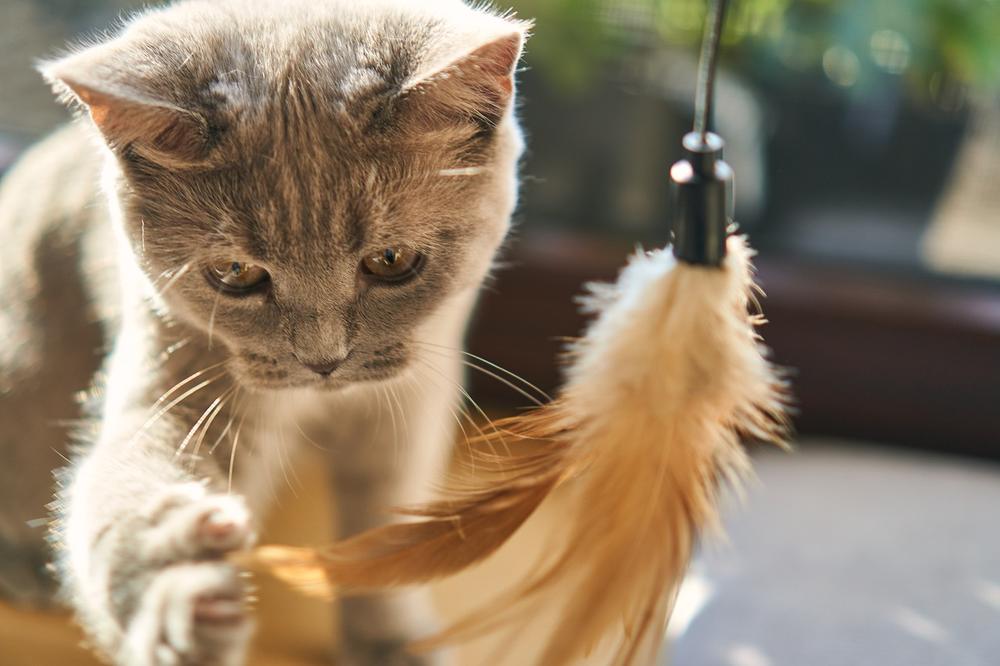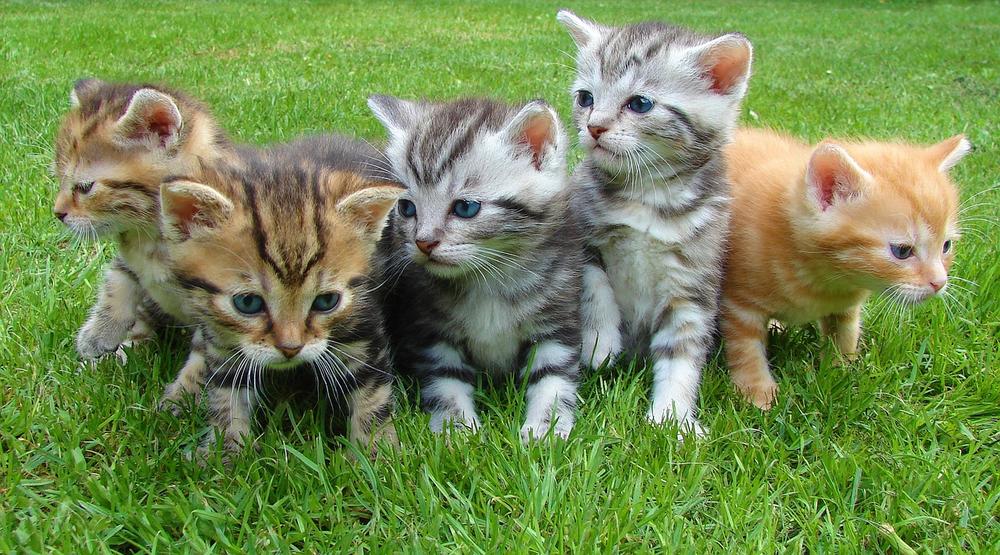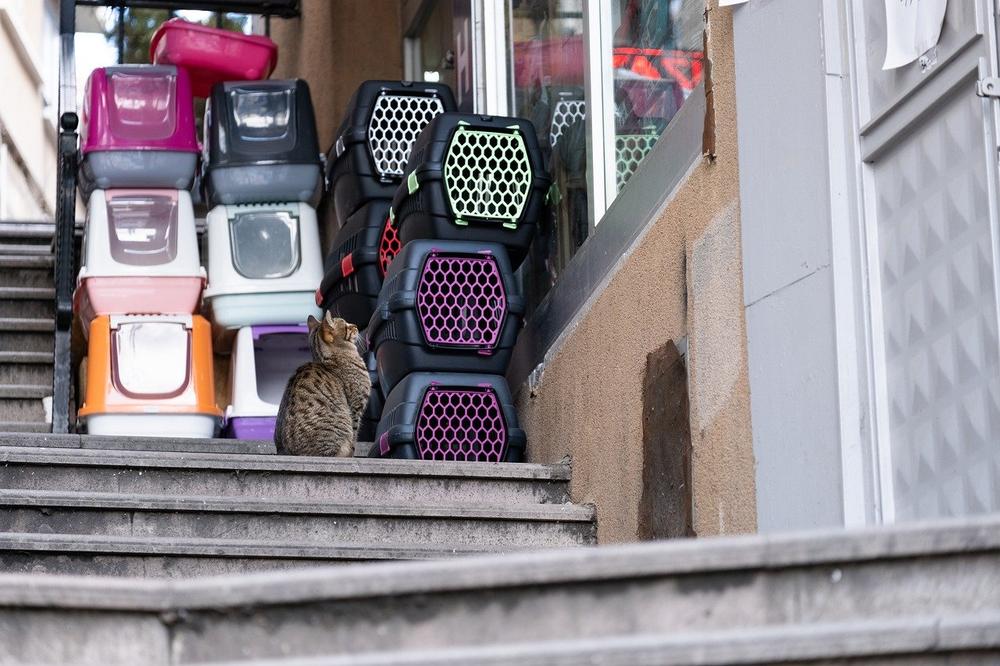How Long Can Cats Hold Their Pee? (Risks & Precautions)

Ever wondered how long cats can hold their pee?
Concerned about your furry friend's health or behavior? 😺
Don't worry, you're not alone in these restless thoughts.
It's easy to become fixated on such matters, pondering if your beloved feline is secretly crossing their legs and holding it in for dear life.
But fear not, my friends—I have the answers you crave, the knowledge you seek.
So, let's dive in and uncover the truth, shall we?
Let the purrfect investigation begin.
How Long Can Cats Hold Their Pee?
Cats have the ability to hold their pee for extended periods, even up to 48 hours. However, you should note that while they can hold it, it is not advisable for them to do so. Ensuring easy access to a clean litter box is essential for their well-being.
Alright, cat owners, let's dive right into it.
How long can cats hold their pee? Well, you'd be interested to know they can hold it for quite a while.
In fact, cats have an impressive ability to hold their pee overnight. They're like little pee-holding champions!
And that's not all...
Cats can actually go without relieving themselves for up to 48 hours.
Incredible, isn't it?
But hold your horses before you start delaying the litter cleaning.

While cats may possess this superpower, it doesn't mean they SHOULD hold it in for so long.
Just because they can, doesn't mean they should.
So, here's what you gotta do:
Firstly, ensure the litter box is easily accessible and located in a quiet area.
Cats don't want any disturbances when they're doing their business, you know?
But hey, keeping the litter box clean and fresh is vital too. No one wants to use a dirty toilet (not even cats).
With that being said, encourage your furry friend to use the litter box regularly and provide plenty of options throughout your home.
Remember, happy cats pee when they need to!
How Many Times a Day Is It Normal for a Cat to Urinate?
The number of times cats pee each day can vary depending on different factors, my friend.
Factors like age, diet, and water consumption all play a part in how often our feline friends need to relieve themselves.
But as long as they don't have any underlying health issues, they typically pee between two to four times daily.
You must keep in mind that if your cat pees more or less frequently than this range, it might be worth consulting a vet.
Conditions such as excessive urination or too little urine could be affecting them without you even knowing it. Now, let's turn our attention to the topic of poop!
Kittens usually have more frequent bowel movements, going about two to three times a day. In contrast, healthy adult cats generally only go once a day. When it comes to litter boxes, the rule of thumb is to have one per cat, plus an extra one if you have multiple furry friends in your household.
It's always good to give them options, you know?
Make sure to pay attention to your kitty's bathroom habits so you can stay informed about their peeing routine. In general, cats who are doing well should pee around one to three times a day.
Now that we've covered how often cats normally urinate, let's dive into some practical tips to ensure your furry companion feels comfortable and confident using the litter box.
From creating a peaceful environment to understanding their unique preferences, I'll share with you the proven methods that will make peeing a stress-free experience for your feline friend. So, are you ready to become a pro at maintaining the perfect litter box setup?
Let's get started!
Helping Cats Feel Comfortable Peeing: Duration of Holding Urine
To help cats feel comfy peeing, follow these practical tips:
- Keep the area around the litter box calm, so your cat can do its business in peace.
- Use pheromone sprays like Feliway to create a relaxed atmosphere and ease stress. 😺
- Play soothing music near the litter box to add to the chill vibe.
- Clean the litter box every day for a hygienic environment.
- Every two to three weeks, empty, wash, and refill the litter box with fresh litter.
- Make sure the litter box is big enough for your cat to move around comfortably.
- Keep fresh water accessible all day to keep your cat hydrated.
- Be mindful of routine changes that may bug your cat, like switching up the litter type.
- When traveling, give your cat potty breaks every six hours and provide a roomy crate with pee pads.
- If you relocate, put a litter box near their hiding spot to respect their boundaries and reduce anxiety.
Lastly, pay attention to your cat's peeing habits, and if any concerns pop up, consult a vet.
Now, you might be wondering about the specific medical conditions that can affect a cat's ability to urinate.

These conditions can range from cystitis and FLUTD to urinary blockages and kidney disease.
The next section will delve into these issues and provide essential information on detecting and treating them.
Stay tuned!
Serious Reasons That Cats Don’t Pee
Here are 10 serious reasons why your cat might have trouble peeing:
- Cystitis, which is basically inflammation in the bladder.
- Feline Lower Urinary Tract Disease (FLUTD), another condition affecting their plumbing.
- Urinary blockages, which can really mess things up down there.
- Male cats can experience a nasty urethral obstruction.
- Kidney disease, when those important organs start acting up.
- Diabetes, a metabolic disorder that can also affect their urination habits.
- Hyperthyroidism, which messes with their hormone levels and can impact urinary function too.
- Long-lasting stress can take its toll on their ability to pee properly.
- Urinary tract infections (UTIs), a bacterial party happening inside their urinary system.
- Last but not least, bladder stones, little rocks causing big issues. 😿
Now, if you notice any of these signs, you gotta get your furry friend to the vet:
- They're visiting their litter box more often than usual.
- They seem to be straining while trying to pee.
- No clumps of urine can be found in the litter box.
- There's blood in their pee. Not good.
- All around difficulty when it comes to doing their business.
If you spot any of these warning signs, don't waste time - straight to the vet they go!
And it gets worse...
Urinary blockages in cats can lead to not just kidney damage, but also potential death within 72 hours.
Let's explore the alarming consequences of untreated urinary blockages and how you can prevent them from happening to your beloved feline friend...
Can a Cat Die From Not Peeing?
| Can a Cat Die From Not Peeing? | |
|---|---|
| Duration without pee | Cats have a natural instinct to use the litter box, and they can hold their pee for a significant period. |
| Potential risks | Although cats can hold their urine, prolonged periods without peeing can lead to serious health issues. |
| Urinary blockages | Urinary blockages may occur if cats are unable to urinate, causing an accumulation of toxins. |
| Kidney damage | Prolonged urinary blockages can result in kidney damage, which is life-threatening for cats. |
| Preventing accidents | Regular urination is crucial to prevent accidents and maintain a cat's overall health. |
How Long Can Cats Hold Their Pee Before Using the Litter Box?
I want to share some important information about how long cats can hold their pee before they need to use the litter box.
You should understand the dangers of not peeing for them.
If a cat doesn't pee, it can result in urinary blockages which may cause kidney damage. 💧
And let me tell you, kidney failure is no joke.
So, if your furry friend hasn't relieved itself in over 48 hours, you should take it really seriously.
Don't ignore it because cats face serious risks when they can't pee, and in extreme cases, they could even die within 72 hours.
Prolonged urinary blockage can lead to toxic accumulation in their system, which poses a huge threat.
It can seriously harm or possibly kill them, which is why regular peeing is so important.
You know, it helps prevent kidney damage.
When a cat goes without peeing for more than 48 hours on multiple occasions, that's definitely trouble.
It means there could be blockages forming, which can damage their bladders and kidneys.
Here's a useful tip:
If your cat doesn't feel well, it might hold its pee for about 24 to 48 hours, and that's generally okay.
But once the clock ticks past 24 hours, you need to watch out.
That's when dangerous toxins start building up in their body.
Cats need to pee regularly for their overall well-being.
So, don't forget to keep an eye on your feline friend's bathroom habits, alright?
The Potential Impact of Minor Stress on a Cat's Urination
Minor stress can disrupt a cat's bathroom habits, as they struggle to adjust to changes in their environment. Cats may hold their urine and feces when feeling anxious in unfamiliar surroundings. By recognizing stressors and providing comfort, you can prevent urinary issues in your feline companion.
Cats are delicate creatures, and even the slightest stress can affect their bathroom habits.
It's not easy for them to adapt to change, whether it's a new roommate, a sudden schedule shift, or even just a small environmental tweak.
Changes in location really make cats uncomfortable, causing them discomfort when they need to go potty.
Trust me, it takes a toll on your furry companion.

Put yourself in their shoes - new surroundings would leave you feeling anxious and apprehensive too, right?
Well, when cats find themselves in an unfamiliar place, they tend to hold onto their pee and poop.
They try to blend into the furniture or something, if only they could. But don't blame them, it's just how they're wired.
As a responsible cat owner, you should understand this and offer comfort and reassurance during these anxiety-inducing times.
Luckily, there's good news.
By anticipating potential stressors in advance and keeping a close eye on any early signs of distress, you can prevent urinary problems in your precious felines.
The Importance of Cat Urination Habits
- Cats can hold their pee for up to 48 hours, but it doesn't mean they should.
- Healthy cats pee 2-4 times a day, while kittens poop 2-3 times a day and adult cats poop once a day.
- Maintaining a clean litter box and providing fresh water are important for a cat's comfort.
- Changes in routine or litter type can affect a cat's litter box usage.
- Male cats are prone to urinary blockages, while certain health conditions can affect urine output.
- Cats not urinating for more than 48 hours may indicate a health issue.
- Cats who haven't peed in over 48 hours are in serious danger and may die if they cannot pee within 72 hours.
- Stressful situations can cause temporary urinary difficulties in cats.
- Planning ahead and recognizing signs of stress can help prevent urinary problems.
- Traveling or being in a new environment can make cats uncomfortable and affect their urinary habits.
And that wraps up today's article.
If you wish to read more of my useful articles, I recommend you check out some of these: How Cold Can Cats Survive Outside, Can Cats Get Fleas in the Winter, Can Cats Get Ticks in the Winter, Do Cats Drink Less Water in the Winter, and How to Keep Cats Cool in Summer Without Ac
Talk soon,
-Sarah Davis